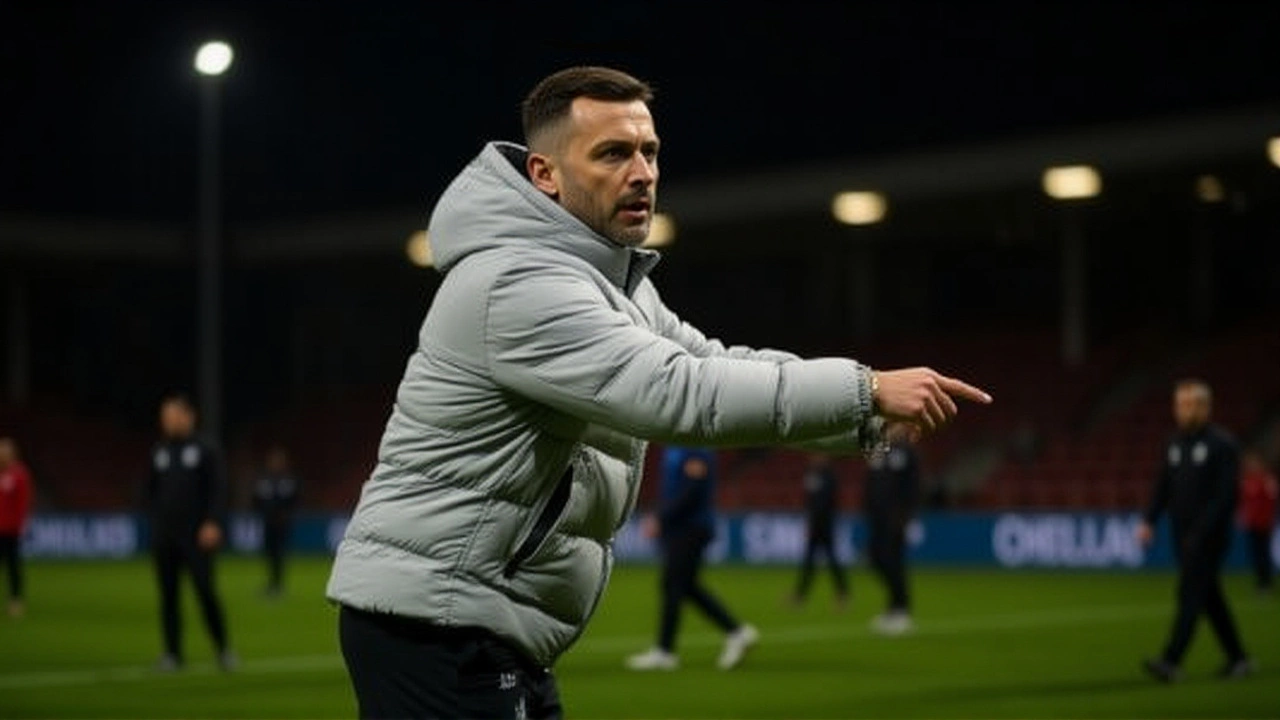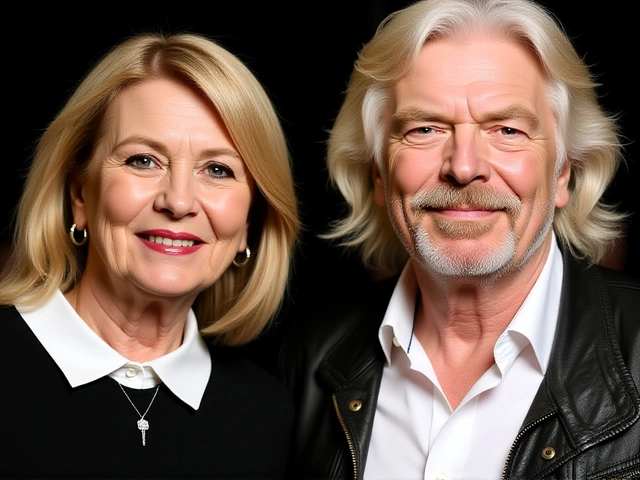Chelsea held on for a heart-stopping 4-3 win over Wolverhampton Wanderers at Molineux Stadium on Wednesday, October 29, 2025, to book their place in the Carabao Cup quarterfinals — and it wasn’t pretty. Down 3-0 at halftime, Wolves mounted a furious second-half rally that nearly erased the deficit entirely, leaving Chelsea with 10 men and their fans gripping their seats until the final whistle. The Carabao Cup delivered exactly what cup football should: chaos, character, and a finish that’ll be replayed for years.
A Commanding Start, Then the Collapse
Chelsea came out like a team determined to prove they belonged in the knockout stages. In the 5th minute, 21-year-old Brazilian midfielder Andrey Santos pounced on a loose ball after a corner, slotted it low past goalkeeper José Sá, and sent the traveling Blues faithful into a frenzy. By the 15th minute, 20-year-old English forward Tyrique George doubled the lead with a cool finish after a slick one-two with Raheem Sterling. Then, just before halftime, 18-year-old Brazilian sensation Estêvão Willian Almeida de Oliveira — known simply as Estêvão — curled a left-footed rocket into the top corner. It was the kind of goal that makes scouts take notes. 3-0. Game over? Not even close.The Wolves Comeback: A Night of Grit
The second half felt like a different match. Wolves, humiliated by their 4-0 loss to Brentford on Saturday, had nothing to lose and everything to prove. Nigerian forward Tolu Arokodare struck in the 48th minute, latching onto a long ball and firing past José Sá. He nearly added another before the hour, heading just wide from six yards. Then, in the 73rd minute, 22-year-old Norwegian defender David Møller Wolfe — yes, a defender — pounced on a long throw-in from Colombian center-back Yerson Mosquera and buried a low drive into the bottom corner. 2-3. The stadium exploded. The Blues’ lead was evaporating.Red Card Chaos and a Last-Gasp Hero
Just when Wolves smelled blood, Chelsea’s discipline unraveled. Substitute Michael Delap, a 20-year-old winger returning from injury, picked up his second yellow card in the 86th minute after a reckless challenge on Arokodare. Chelsea were down to 10. Molineux roared. But then, in the 89th minute, 21-year-old English winger Jamie Gittens — who’d barely touched the ball all night — rose above the defense on a counterattack, looped a volley from the edge of the box, and watched as it clipped the post and bounced in. 3-4. Cue pandemonium in the away end.But Wolves weren’t done. On the very next attack, Wolfe struck again — this time with a right-footed curler from inside the box. 3-4. The final whistle was 30 seconds away. The home crowd believed. The Blues held their breath. A last-ditch Wolves corner was cleared. The referee blew. The noise was deafening — not for joy, but for pride.
What This Means for Both Clubs
For Chelsea, this win was messy but vital. With the Premier League campaign faltering and European qualification slipping away, the Carabao Cup is now their most realistic shot at silverware. Manager Mauricio Pochettino will be relieved — but also wary. His team’s defensive frailties were exposed again. They’ll face either Liverpool or Crystal Palace in the quarterfinals, scheduled for early December. A clash with Liverpool? That’s a dream tie — and a nightmare for their backline.For Wolves, this was a moral victory. They lost, but they didn’t fold. They fought. They scored three goals against a Premier League top-six side on the road. Supporters chanted long after the final whistle — a stark contrast to Saturday’s silence after the Brentford thrashing. Manager Julen Lopetegui said afterward: “We played with heart. That’s what we asked for. The result doesn’t define us tonight.”
Behind the Numbers
- Chelsea’s 3-0 lead at halftime was their biggest in any cup match this season. - David Møller Wolfe became the first Norwegian to score twice in a single Carabao Cup match since 2012. - Estêvão’s goal was his third in his last five appearances — a remarkable surge for an 18-year-old. - Wolves had 18 shots to Chelsea’s 11, with 10 on target — a clear sign of their dominance in the second half. - Molineux Stadium, built in 1889, hosted its 1,702nd competitive match on Wednesday — and one of its most memorable.What’s Next?
Chelsea’s next match is a Premier League home fixture against Brighton on November 2, 2025. But eyes are already on the quarterfinal draw — likely to be made on November 6. A trip to Anfield? A trip to Selhurst Park? Either way, they’ll need to fix their defensive lapses. Wolves, meanwhile, return to Premier League action on November 2, hosting Leeds United. They sit 14th with 10 points from 10 games. If they can channel this performance into league play, a top-half finish isn’t out of reach.Frequently Asked Questions
How did Estêvão’s performance impact Chelsea’s future prospects?
Estêvão’s goal wasn’t just a highlight — it was a statement. At 18, he’s now Chelsea’s youngest goalscorer in the Carabao Cup since Mason Mount in 2019. His pace, composure, and finishing suggest he could be a long-term replacement for the aging Raheem Sterling. Analysts are already comparing him to a young Romelu Lukaku — and Chelsea’s academy is buzzing. His contract expires in 2027, and negotiations are expected to begin soon.
Why did Wolves’ supporters cheer despite the loss?
After a 4-0 thrashing by Brentford on Saturday, Wolves fans had little to celebrate. Wednesday’s comeback — three goals, relentless pressure, and a performance that matched their Premier League rivals — restored pride. The team showed fight, unity, and attacking intent. For a club that’s been criticized for being too cautious under Lopetegui, this was a turning point in fan perception. The chants of “Wolfs! Wolfs!” echoed long after the final whistle.
What does Michael Delap’s red card mean for Chelsea’s squad depth?
Delap’s second yellow was a costly moment. He’s one of only two genuine wingers in Pochettino’s senior squad, and his injury return was supposed to add freshness. Now, with Gittens and Sterling carrying fitness concerns, Chelsea’s wing options are thin. The club is expected to monitor the January transfer window for a left-sided attacker, especially with the Europa League looming. Without depth, they risk burnout in a congested schedule.
Could Wolves have won if they’d scored earlier in the second half?
Absolutely. Tolu Arokodare missed a golden chance in the 55th minute — a header from six yards that flew just wide. Had he scored then, the momentum would have shifted completely. Chelsea were already rattled after the 3-0 lead. A goal at 3-1 would have made the red card even more catastrophic. Instead, the 3-2 scoreline gave Chelsea breathing room. That miss may haunt Arokodare — and Wolves — for weeks.
Is the Carabao Cup still relevant with so many top teams resting players?
Wednesday’s match proved it is. While Chelsea fielded a mix of youth and fringe players, they still had real talent — and Wolves played their strongest XI. The cup remains a vital platform for young players like Estêvão and Delap to shine. Plus, with a Champions League spot up for grabs via the FA Cup or Carabao Cup, even top clubs can’t afford to treat it as a joke. This game had stakes, passion, and drama — the exact ingredients that make football special.
What’s the history between Chelsea and Wolves in cup competitions?
The two clubs have met 17 times in cup competitions since 1967, with Chelsea winning 10, Wolves 4, and 3 draws. Their most famous encounter was the 1970 FA Cup final, which Chelsea won 2-1 in extra time. In the Carabao Cup, they’ve faced each other 5 times since 2000 — Chelsea won 3, including a 2-1 victory in the 2021 quarterfinals. This 4-3 result marks the highest-scoring match between them in the cup era.




